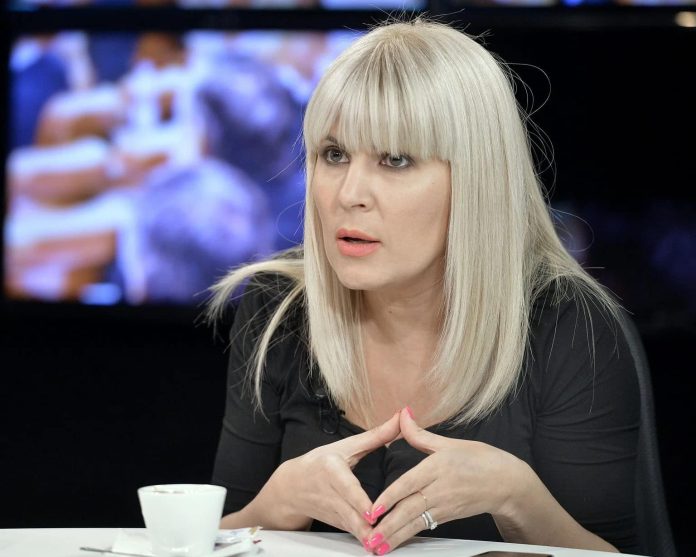Judge Corina Ciobanu with the Bucharest Court of Appeal decided on Tuesday to send a request to the Bulgarian authorities to find out if former minister Elena Udrea can still be tried in the cases pending before the Romanian courts, as a result of her extradition from the neighboring country, according to Agerpres.
On Tuesday, judge Corina Ciobanu should have heard Elena Udrea in the Hidroelectrica case, in which Udrea is accused of influence peddling and money laundering, in connection with the amount of 5 million dollars received from businessman Bogdan Buzaianu.
Udrea is in the Targsor Penitentiary, where she is serving a 6-year sentence received in the Gala Bute criminal case, and the hearing at the Bucharest Court of Appeal was to be done by videoconference.
At the beginning of the trial, Elena Udrea’s lawyers requested the termination of the criminal trial on the grounds that the facts of which Udrea is accused in this case were time-barred, being invoked in this regard a decision of the Constitutional Court of May 2022.
The magistrate in charge of this case, Corina Ciobanu, has discussed ex officio a matter of procedure, invoking the „rule of speciality” of Law 302/2004, which stipulates that the country that extradites a person in Romania may impose certain restrictions on the trial and prosecution of the extradited person.
According to Law 302/2004, a person surrendered as a result of the expulsion will be neither pursued, nor judged, nor detained for the purpose of executing a sentence, nor subject to any other restriction of his/her individual freedom, for any fact prior to the surrender, other than the one that motivated the extradition.
Basically, the judge wants to find out if the Bulgarian judicial authorities have decided that Elena Udrea should be expelled to Romania only for the Gala Bute case, a condition in which she will no longer be able to be judged in the other cases she still has before the courts.
Asked by justice Corina Ciobanu if the Bulgarian courts had taken or given her consent to the „rule of specialty”, Elena Udrea said she did not know what it is about because she is not a lawyer.
Although Elena Udrea’s lawyer mentioned that nothing had been discussed in the Bulgarian courts, the judge insisted on sending an address to the neighbouring country in order to be given clarifications on the conditions of the extradition.
Elena Udrea currently has two cases underway in the Romanian courts:
* The Hidroelectrica case, at the Bucharest Court of Appeal, in which she was sent to court by the National Anti-corruption Directorate (DNA) for influence peddling and money laundering, together with the journalist Dan Andronic, accused of lying. According to DNA, Elena Udrea accepted the promise made through intermediaries by businessman Bogdan Buzaianu, in 2011, to receive the sum of 5 million dollars in order to exert her influence on the decision-makers within the Ministry of Economy and Hidroelectrica, in order to maintain, under the already negotiated conditions, the contracts that the businessman’s company had concluded with the energy producing company.
* The file on the financing of former President of Romania, Traian Basescu’s electoral campaign in 2009. In the first instance, Udrea received an eight-year prison sentence for committing offences of inciting bribery and money laundering. The trial is being tried in the appeal phase to the Supreme Court.
Agerpres


